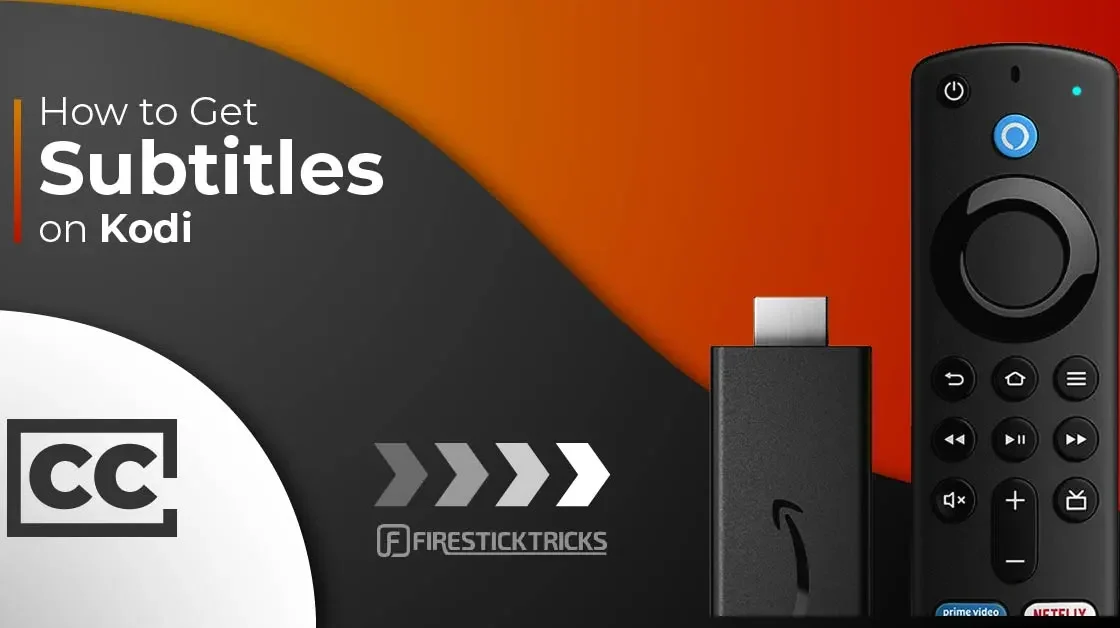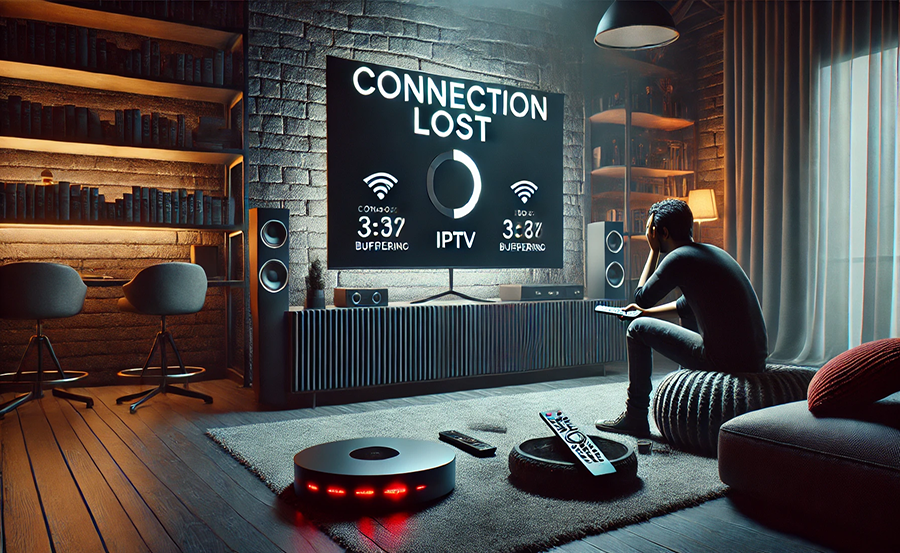
Introduction
In today’s digital age, there are multiple options available for accessing television content. Traditional cable TV has been the go-to choice for decades, but with the advent of streaming services and IPTV (Internet Protocol Television), consumers now have more choices than ever before. In this article, we will compare the advantages and disadvantages of IPTV, cable TV, and popular streaming services like Netflix and Hulu. We will also highlight why IPTV might be a better option for certain users.
When it comes to accessing television content, cable TV has long been the dominant player. With a cable subscription, users can access a wide range of channels, including popular networks like HBO, ESPN, and CNN. Cable TV also offers features like on-demand content and DVR capabilities, allowing users to record their favorite shows and watch them at their convenience. However, cable TV comes with its drawbacks. The cost of cable subscriptions can be quite high, and users often find themselves paying for channels they never watch. Additionally, cable TV requires the installation of physical cables, which can be inconvenient and time-consuming.
Get the best deals for an IPTV
On the other hand, streaming services like Netflix and Hulu have gained immense popularity in recent years. These services offer a vast library of movies, TV shows, and original content that can be accessed on-demand. With a streaming service subscription, users can watch their favorite shows and movies anytime, anywhere, as long as they have an internet connection. Streaming services are also often more affordable than cable TV, with subscription plans starting as low as $9.99 per month. However, streaming services have their limitations as well. While they offer a wide range of content, they may not have access to all the latest shows and movies. Additionally, streaming services rely on an internet connection, which can be unreliable in certain areas or during peak usage times.
Enter IPTV, a relatively new player in the television content market. IPTV uses internet protocol to deliver television content to users’ devices. This means that users can access their favorite shows and movies through an internet connection, without the need for physical cables or satellite dishes. IPTV offers a wide range of channels, including international ones, giving users access to content from around the world. Additionally, IPTV is often more affordable than cable TV, with subscription plans starting as low as $20 per month. IPTV also offers features like on-demand content and DVR capabilities, making it a versatile and convenient option for users.
However, like any other television content option, IPTV has its disadvantages as well. IPTV relies heavily on a stable and fast internet connection. If the internet connection is slow or unreliable, users may experience buffering or poor picture quality. Additionally, the legality of IPTV services can be a gray area, as some providers may offer access to copyrighted content without proper licensing. Users should exercise caution and ensure that they are using a reputable IPTV service that operates within the legal boundaries.
In conclusion, the television content landscape has evolved significantly in recent years, giving consumers more choices than ever before. While cable TV has been the traditional choice, streaming services like Netflix and Hulu have gained popularity for their on-demand content and affordability. IPTV offers a unique alternative, with its wide range of channels and convenience. However, users should carefully consider their needs and priorities before making a decision. Whether it’s cable TV, streaming services, or IPTV, the key is to find the option that best suits one’s preferences and budget.
Advantages:
- Flexibility: One of the major advantages of IPTV is its flexibility. With IPTV, users have the ability to watch their favorite shows and movies on a variety of devices, including smartphones, tablets, smart TVs, and computers. This means you can enjoy your favorite content anytime, anywhere.
- Customizability: IPTV allows users to customize their viewing experience. Users can choose from a wide range of channels and create personalized playlists. This level of customization ensures that users only pay for the content they want to watch.
- Interactive Features: IPTV offers interactive features that are not available with traditional cable TV. Users can pause, rewind, or fast-forward through content, allowing for a more personalized viewing experience. Some IPTV providers also offer additional features like video-on-demand and catch-up TV.
- High-Quality Streaming: IPTV provides high-quality streaming, often in HD or even 4K resolution. This ensures a superior viewing experience compared to traditional cable TV.
- Access to International Content: One of the significant advantages of IPTV is the ability to access international content. With traditional cable TV, you are limited to the channels available in your region. However, with IPTV, you can access channels from around the world, allowing you to explore different cultures and languages.
- Multi-Device Streaming: IPTV allows for multi-device streaming, meaning that multiple users can watch different channels or content on separate devices simultaneously. This is particularly beneficial for households with multiple family members who have different viewing preferences.
Disadvantages:
- Internet Dependency: IPTV relies on an internet connection, which means that if your internet connection is slow or unreliable, it can affect the quality of your streaming experience. This is particularly important to consider if you live in an area with limited internet access or if you frequently experience internet outages.
- Subscription Fees: While IPTV offers a wide range of channels and customizable options, it usually comes with a subscription fee. These fees can vary depending on the provider and the package you choose. It’s important to consider the cost of IPTV compared to other options.
- Technical Knowledge: Setting up and configuring IPTV can require some technical knowledge. Users may need to install specific apps or software, configure network settings, and troubleshoot any issues that arise. This can be a challenge for users who are not tech-savvy.
- Legal Concerns: Another disadvantage of IPTV is the potential for legal concerns. While IPTV itself is not illegal, accessing copyrighted content without proper authorization is. Some IPTV providers may offer illegal streams or unauthorized access to premium channels, which can put users at risk of legal consequences.
- Reliability: While IPTV can offer a great streaming experience, it is not always as reliable as traditional cable TV. Factors such as network congestion or server issues can lead to buffering or interruptions in the streaming service. This can be frustrating, especially during important live events or when watching time-sensitive content.
Get the best deals for an IPTV
Cable TV: Advantages and Disadvantages
Advantages:
- Reliability: Cable TV has been around for a long time and is known for its reliability. It is not dependent on an internet connection, so you can enjoy uninterrupted viewing even during internet outages.
- Channel Selection: Cable TV offers a wide range of channels, including local channels, sports channels, and premium channels. This ensures that you have access to a diverse range of content.
- Easy Setup: Setting up cable TV is relatively easy. All you need is a cable box and a subscription to a cable TV provider. Once you have these, you can start watching your favorite shows and movies.
- Bundled Services: Many cable TV providers offer bundled services, which can include internet and phone services. This can be convenient for users who want to have all their entertainment and communication needs in one package.
Disadvantages:
- Limited Flexibility: Cable TV is limited to the television set it is connected to. You cannot watch cable TV on other devices like smartphones or tablets unless you have additional equipment like a cable card or a set-top box.
- Higher Costs: Cable TV subscriptions can be expensive, especially when you consider the additional costs of premium channels and equipment rental fees. These costs can add up over time.
- Lack of Customization: Cable TV packages often come with predefined channel lineups, and users have limited control over the channels they receive. This means you may end up paying for channels you never watch.
- Less Interactive Features: Cable TV does not offer the same level of interactivity as IPTV. You cannot pause, rewind, or fast-forward through content, and features like video-on-demand may be limited.
Despite these disadvantages, cable TV continues to be a popular choice for many households. Its reliability and wide range of channel options make it an appealing option for those who value a traditional television viewing experience. Additionally, the bundled services offered by cable TV providers can provide convenience and cost savings for those who want to combine their entertainment and communication needs.
However, with the rise of internet streaming services and the increasing popularity of IPTV, cable TV is facing competition like never before. Internet streaming services offer more flexibility and customization options, allowing users to watch their favorite shows and movies on a variety of devices. They also often come at a lower cost compared to traditional cable TV subscriptions.
It is important for consumers to carefully consider their needs and preferences when choosing between cable TV and other options. Factors such as budget, desired channel selection, and the availability of internet services should all be taken into account. Ultimately, the decision will depend on individual circumstances and what each person values most in their television viewing experience.
Get the best deals for an IPTV
Streaming Services: Advantages and Disadvantages
Advantages:
- Wide Content Variety: Streaming services like Netflix and Hulu offer a wide range of content, including TV shows, movies, documentaries, and original programming. This ensures that there is something for everyone.
- On-Demand Viewing: Streaming services allow users to watch content on-demand. You can choose what you want to watch and when you want to watch it, giving you more control over your viewing experience.
- Compatibility: Streaming services are compatible with a variety of devices, including smartphones, tablets, smart TVs, and streaming media players. This means you can watch your favorite shows and movies on the go or on the big screen.
- Affordability: Streaming services are often more affordable than cable TV subscriptions. They offer different pricing tiers, allowing users to choose a plan that fits their budget.
- Personalization: Streaming services use algorithms to analyze your viewing habits and provide personalized recommendations. This helps you discover new content that aligns with your interests, making it easier to find something you’ll enjoy.
- No Commercials: Unlike traditional TV, streaming services typically do not have commercials. This allows for uninterrupted viewing and eliminates the frustration of sitting through ads.
- Flexibility: Streaming services offer the flexibility to pause, rewind, and fast-forward through content. This is especially beneficial for busy individuals who may need to take breaks or skip ahead.
- No Contracts: Most streaming services operate on a month-to-month basis, meaning you can cancel or change your subscription at any time without being tied to a long-term contract.
Disadvantages:
- Internet Dependency: Like IPTV, streaming services rely on an internet connection. Slow or unreliable internet can result in buffering issues and a poor streaming experience.
- Content Availability: While streaming services offer a wide range of content, they may not have the latest releases or certain niche channels. This can be a drawback for users who are looking for specific content.
- Subscription Fatigue: With multiple streaming services available, users may find themselves subscribing to multiple platforms to access all their favorite content. This can lead to subscription fatigue and increased costs.
- Content Exclusivity: Some streaming services have exclusive content, which means you may need to subscribe to multiple platforms to access all the shows and movies you want to watch.
- Data Usage: Streaming services consume a significant amount of data, especially when watching in high definition. This can be a concern for users with limited data plans or those in areas with slow internet speeds.
- Loss of Ownership: When you stream content, you do not own a physical copy of it. This means that if a streaming service removes a show or movie from its library, you may no longer have access to it.
- Limited Offline Viewing: While some streaming services offer the option to download content for offline viewing, not all shows and movies are available for download. This can be inconvenient when traveling or in areas with poor internet connectivity.
- Privacy Concerns: Streaming services collect data on your viewing habits, which can raise privacy concerns for some users. It is important to review a service’s privacy policy and understand how your data is being used.
Furthermore, IPTV offers a wider range of international content compared to cable TV and streaming services. With IPTV, users can access channels and content from all around the world, allowing them to explore different cultures and languages. This is particularly beneficial for individuals who are interested in global news, sports, or entertainment.
In addition to the extensive channel selection, IPTV also provides users with on-demand content. This means that users can access their favorite shows and movies at any time, without having to wait for a specific broadcast time. With the ability to binge-watch entire seasons or catch up on missed episodes, IPTV offers a level of convenience that traditional cable TV cannot match.
It is important for consumers to carefully consider their needs and preferences when choosing between cable TV and other options. Factors such as budget, desired channel selection, and the availability of internet services should all be taken into account. Ultimately, the decision will depend on individual circumstances and what each person values most in their television viewing experience.
Get the best deals for an IPTV
Moreover, IPTV often comes with advanced features such as parental controls and multi-screen viewing. With parental controls, parents can restrict certain content from being accessed by their children, ensuring a safe and appropriate viewing experience. Multi-screen viewing allows users to watch different channels on multiple devices simultaneously, making it ideal for households with multiple viewers.
Another advantage of IPTV is its reliability. Unlike cable TV, which can be affected by weather conditions or technical issues, IPTV relies on internet connectivity. As long as you have a stable internet connection, you can enjoy uninterrupted streaming of your favorite shows and movies. This makes IPTV a more reliable option, especially for users who live in areas with frequent cable outages or disruptions.
Lastly, IPTV often comes with additional features such as interactive program guides, video-on-demand libraries, and catch-up TV. These features enhance the overall user experience, providing easy navigation and access to a wide range of content. Whether you want to discover new shows, watch the latest movies, or catch up on your favorite sports events, IPTV offers a comprehensive entertainment solution.
In conclusion, while cable TV and streaming services have their merits, IPTV offers unique advantages that make it a better option for certain users. With its device compatibility, customization options, high-quality streaming, international content, on-demand access, advanced features, reliability, and additional functionalities, IPTV provides a superior viewing experience that caters to the diverse needs and preferences of modern viewers.
It is important for consumers to carefully consider their needs and preferences when choosing between cable TV and other options. Factors such as budget, desired channel selection, and the availability of internet services should all be taken into account. Ultimately, the decision will depend on individual circumstances and what each person values most in their television viewing experience.
Get the best deals for an IPTV



